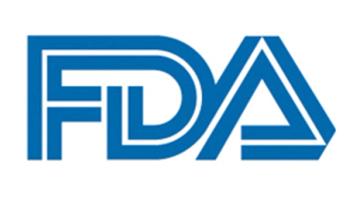
An expert discusses lung cancer advances from 2020, as well as exciting new research that is underway.

An expert discusses lung cancer advances from 2020, as well as exciting new research that is underway.

The FDA has accepted a biologics license application (BLA) to review eflapegrastim (Rolontis) for the management of chemotherapy-induced neutropenia, according to Spectrum Pharmaceuticals, the developer of the novel long-acting granulocyte-colony stimulating factor (G-CSF).

Not all patients with advanced non–small cell lung cancer (NSCLC) are recommended for genomic testing when treated in a community setting, and are therefore not being appropriately tested for potential molecular drivers of their disease, explained Nathan Pennell, MD, PhD.

There is still a lack of clear biomarkers in the metastatic renal cell carcinoma space.

We want to hear from you about what you think were the top cancer advances of the last 10 years.


The FDA has accepted a biologics license application (BLA) for sacituzumab govitecan as a treatment for patients with metastatic triple-negative breast cancer (TNBC) who have received at least 2 prior therapies for metastatic disease, according to a statement from the company developing the antibody-drug conjugate (ADC), Immunomedics.

After decades of few advances and stagnant treatment approaches, which mainly comprised 7+3 chemotherapy, the acute myeloid leukemia (AML) paradigm now has several agents approved, and plenty of ongoing trials are exploring other novel therapies alone and in combination, according to Melissa L. Larson, MD.

The FDA has granted fast track designation to the potent reversible LSD1 inhibitor SP-2577 (seclidemstat) for the treatment of relapsed/refractory patients with Ewing sarcoma.

The year – and the decade – are coming to a close. Look back with us at the top web articles of 2019.

The approval of novel agents, specifically blinatumomab (Blincyto) and CAR T-cell therapy, in the acute lymphoblastic leukemia (ALL) paradigm has led has to expanded options for pediatric, adolescent and young adult (AYA), and adult patients; however, ongoing trials are poised to keep moving the field forward, said Joseph Wynne, MD.

A biologics license application has been submitted to the FDA for the rituximab (Rituxan) biosimilar ABP 798, according to the developers, Amgen and Allergan

The FDA has approved the use of Trastuzumab Deruxtecan for the treatment of patients with HER2+ Breast Cancer, based on recent findings.

Three pivotal trials demonstrating improved metastasis-free survival (MFS) with 3 different oral antiandrogen agents in combination with androgen deprivation therapy (ADT) have led to FDA approvals that have transformed the treatment paradigm in nonmetastatic castration-resistant prostate cancer (CRPC), said Elisabeth I. Heath, MD, FACP.

Nurses tend to sleep less before a shift, which could impact patient care, according to recent research conducted at NYU Rory Meyers College of Nursing.

The FDA has granted tucatinib a breakthrough therapy designation for use in combination with trastuzumab (Herceptin) and capecitabine (Xeloda) for the treatment of patients with unresectable locally advanced or metastatic HER2-positive breast cancer, including patients with brain metastases, who had prior trastuzumab, pertuzumab (Perjeta), and ado-trastuzumab emtansine (T-DM1; Kadcyla).


Within approximately 1 year, 3 combination regimens featuring immunotherapy agents were approved by the FDA for the frontline treatment of patients with metastatic renal cell carcinoma (RCC), said Robert J. Motzer, MD.

An expert discusses how clinicians choose between PARP inhibitors for patients with ovarian cancer, and what may be coming next in the field.

The FDA has approved a supplemental new drug application for enzalutamide (Xtandi) for the treatment of patients with metastatic castration-sensitive prostate cancer.

Residual cancer burden (RCB) after neoadjuvant chemotherapy has been shown to be an accurate long-term predictor of disease recurrence and survival across all breast cancer subtypes, according to data from a large meta-analysis presented at the 2019 San Antonio Breast Cancer Symposium.

There's a title wave of older adults flooding the healthcare system. Hear from two oncology nurses on how practitioners can be preapred to give high-quality care.

A durvalumab (Imfinzi)-based neoadjuvant regimen induced a pathologic complete response (pCR) rate of 44% in patients with triple-negative breast cancer (TNBC), according to results of a phase I/II study presented in a poster at the 2019 San Antonio Breast Cancer Symposium.

Researchers and clinicians should consider treatment-free survival when analyzing the results of clinical trials, according to one expert.

Real-world clinical practice results for frontline palbociclib (Ibrance) indicate that the positive progression-free survival (PFS) data previously reported with the CDK4/6 inhibitor in the pivotal PALOMA-2 trial would likely translate to an overall survival (OS) benefit in patients with HR-positive/HER2-negative metastatic breast cancer.

An expert discusses recent exciting advances in the treatment landscape of metastatic melanoma.

Trastuzumab deruxtecan had an ORR rate of nearly 61% for patients with advanced HER2-positive breast cancer.

A majority of adult patients with β-thalassemia who require regular red blood cell (RBC) transfusions experienced clinically meaningful and durable transfusion burden reduction associated with luspatercept (Reblozyl) in the phase III BELIEVE trial.

The FDA has approved 2 abbreviated new drug applications (ANDAs) for everolimus (Afinitor) tablets for the treatment of patients numerous malignancies.

CAR T-cell therapy is an emerging targeted therapy that has large potential for patients whose disease is relapsed or refractory.